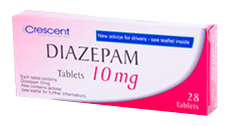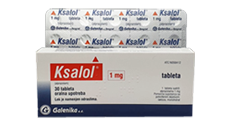Let's explore everything you need to know about anxiety medications, from their definition and purpose to how they work, their effectiveness, symptoms and causes of anxiety, types of anxiety disorders, treatment options, potential side effects, risks, considerations for choosing the right medication, and how to access anxiety medications for improved mental well-being.
What are Anxiety Medications?
Anxiety medications, also known as anxiolytics, are pharmaceutical drugs designed to alleviate the symptoms associated with anxiety disorders. These medications work by targeting specific neurotransmitters in the brain to reduce feelings of fear, worry, and tension, promoting a sense of calmness and relaxation.
Anxiety medications serve the primary purpose of alleviating symptoms of anxiety disorders, including generalized anxiety disorder (GAD), panic disorder, social anxiety disorder, and specific phobias. By modulating neurotransmitter activity in the brain, these medications help individuals manage their anxiety symptoms and improve their overall quality of life.
How do Anxiety Medications Work?
Anxiety medications exert their therapeutic effects by targeting neurotransmitters involved in regulating mood and emotions, particularly gamma-aminobutyric acid (GABA) and serotonin. By enhancing the activity of inhibitory neurotransmitters like GABA and modulating serotonin levels, these medications help calm the central nervous system, reducing anxiety levels and promoting relaxation.
Benzodiazepines, one class of anxiety medications, enhance the inhibitory effects of GABA in the brain, leading to sedation, muscle relaxation, and anxiolytic effects. Antidepressants, another commonly prescribed class of medications, work by increasing serotonin levels in the brain, alleviating symptoms of anxiety and depression.
Effectiveness of Anxiety Medications
Research findings suggest that anxiety medications are generally effective in reducing symptoms associated with anxiety disorders. Clinical studies have demonstrated their efficacy in relieving feelings of panic, worry, and fear, allowing individuals to function more effectively in their daily lives and engage in meaningful activities.
Symptoms of Anxiety
Anxiety disorders encompass a wide range of symptoms, including excessive worry, restlessness, irritability, difficulty concentrating, muscle tension, sleep disturbances, and panic attacks. These symptoms can vary in intensity and duration, significantly impacting an individual's mental and emotional well-being.
Causes of Anxiety
The causes of anxiety disorders are multifactorial and can include genetic predisposition, environmental stressors, traumatic life experiences, imbalances in brain chemistry, and underlying medical conditions. A combination of these factors may contribute to the development and exacerbation of anxiety symptoms.
Types of Anxiety Disorders
Anxiety disorders are classified into several subtypes, each characterized by distinct symptoms and diagnostic criteria:
Panic Attacks: Sudden and intense episodes of fear or discomfort, often accompanied by physical symptoms such as chest pain, shortness of breath, and dizziness.
Generalized Anxiety Disorder (GAD): Persistent and excessive worry or anxiety about various aspects of life, lasting for six months or more.
Phobias: Extreme and irrational fears of specific objects or situations, leading to avoidance behaviour.
Social Anxiety Disorder (Social Phobia): Intense fear of social situations or performance situations, often accompanied by feelings of embarrassment or humiliation.
Treatment Options
Treatment for anxiety disorders typically encompasses a multifaceted approach, combining various strategies aimed at alleviating symptoms and promoting overall well-being. One key component of treatment involves medication, which can help manage symptoms and improve functioning in individuals with anxiety disorders.
Among the medication options available for anxiety, benzodiazepines are commonly prescribed for short-term relief of symptoms due to their fast-acting nature. These medications work by enhancing the effects of a neurotransmitter called gamma-aminobutyric acid (GABA), which produces calming effects on the brain.
Antidepressants are another class of medications frequently used to treat anxiety disorders. Selective serotonin reuptake inhibitors (SSRIs) and serotonin-norepinephrine reuptake inhibitors (SNRIs) are the most commonly prescribed antidepressants for anxiety. They work by increasing the levels of serotonin and, in the case of SNRIs, norepinephrine in the brain, which helps regulate mood and reduce anxiety symptoms over time.
Tricyclic antidepressants (TCAs) may also be prescribed for anxiety, although they are less commonly used due to their side effects and potential for overdose. However, they can be effective for certain individuals who do not respond to other medications.
Additionally, beta-blockers are sometimes used to manage the physical symptoms of anxiety, such as rapid heartbeat and trembling, by blocking the effects of adrenaline on the body's receptors.
Overall, the choice of medication depends on various factors, including the type and severity of anxiety disorder, individual preferences, and potential side effects. Individuals need to work closely with their healthcare providers to determine the most appropriate treatment plan for their specific needs.
Potential Side Effects
Anxiety medications may cause side effects, including drowsiness, dizziness, nausea, headaches, gastrointestinal disturbances, and sexual dysfunction. It's essential to discuss potential side effects with a healthcare provider and monitor for any adverse reactions during treatment.
Risks and Complications
Anxiety medication use carries certain risks and complications, including the risk of dependence, tolerance, withdrawal symptoms, and potential interactions with other medications or substances. Long-term use of benzodiazepines, in particular, may lead to physical and psychological dependence, necessitating careful monitoring and management.
Who Cannot Take Anxiety Medications?
Certain individuals may not be suitable candidates for anxiety medication use, including pregnant or breastfeeding women, individuals with a history of substance abuse or addiction, and those with certain medical conditions or allergies. It's essential to consult with a healthcare provider before initiating treatment to ensure the safety and efficacy of anxiety medications.
Which Anxiety Medication is Best for Me?
Choosing the right anxiety medication depends on various factors, including the type and severity of anxiety, individual health status, treatment goals, and preferences. A healthcare provider can conduct a thorough evaluation and recommend the most appropriate medication based on your specific needs and circumstances.
Buy Anxiety Medications Today!
Accessing anxiety medications is essential for improving mental well-being and managing anxiety effectively. Whether you're seeking benzodiazepines, antidepressants, or other anxiety medications, Best Sleeping Solutions offers a range of options to suit your needs. Browse our selection of anxiety medications and take a step towards better mental health today!
Last Reviewed: 24th September 2024
Next Review Due: October 2025



